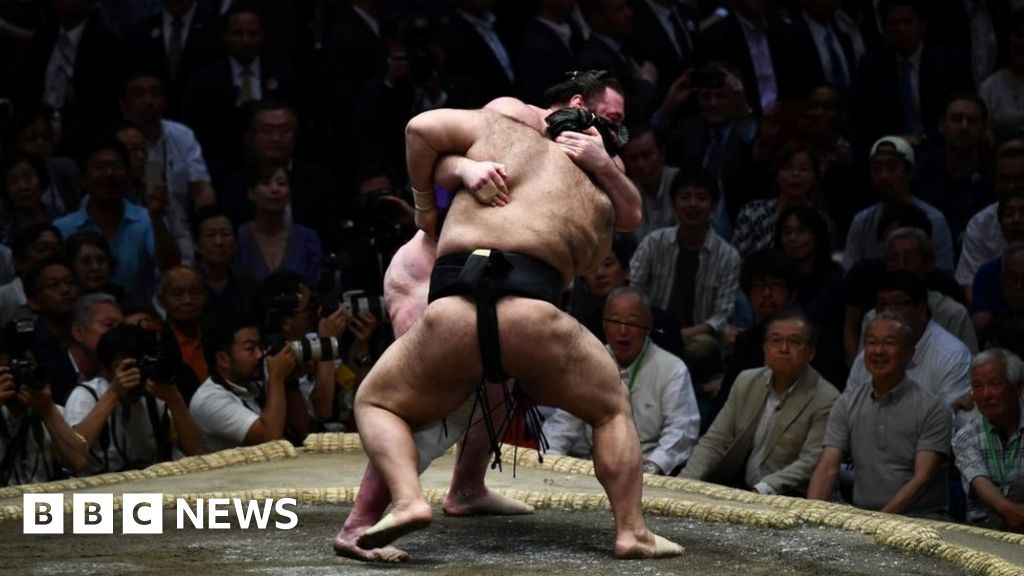This is a difficult subject to rationally discuss the pros and cons, as it is related to cultural chauvinism, an emotionally charged issue. I am of conflicted opinion. The video above is similar to the South Pacific Islander ritual war dance, meant to intimidate the opponent with a show of unity and strength and perhaps avoiding actual physical combat. Similar displays are seen throughout the animal world to avoid intraspecies violence. Some of the ritual in sumo is based on this, much on religious (Shinto, a very Japanese) tradition. Hard for outsiders to identify with Shinto.
While other cultures may appropriate these kind of rituals on a physical level, chances are they are not a part of their cultural soul and do not have the personal meaning they have to the native culture. Imagine your country's national flag taken over by another country and used there for some mundane purpose. If you're British, how would you feel about the Palace Guards bear fur hats adopted by McDonald's as part of their uniform? Maybe some wouldn't care, but others would feel an insult.
How would an Apache or Navajo feel if a person of European descent joined in one of their cultural spirit dances? I think there would need to be a process before they felt comfortable with it. Personally, I have respect for most cultural traditions.
It is practically impossible for a non-Japanese to be accepted as Japanese (legally and socially) even if born there. It is very insular. Never colonized, little immigration, homogenous language and race, and a very long history of social norms and traditions, it is a very protective country. One can argue this is a source of national pride and strength of their culture (with many admirable qualities, IMO), and can perhaps said to be racist as well (though I think the racism is based on anybody being non-Japanese, rather than just color) It is much different than the USA which was built from a number of immigrant origins and customs. This too, is a source of strength, as well as a source of problems.
After these considerations, I am still of mixed feelings on the general subject. Regarding sumo, specifically, I think if outsiders are skillful and fully respect the traditions of the sport (which is, or at least, used to be seen as more than mere sport to the Japanese) they should be allowed to compete and be treated on an equal basis within the sumo world. They should not expect to be easily or quickly considered "family" however. Such is the reality.



